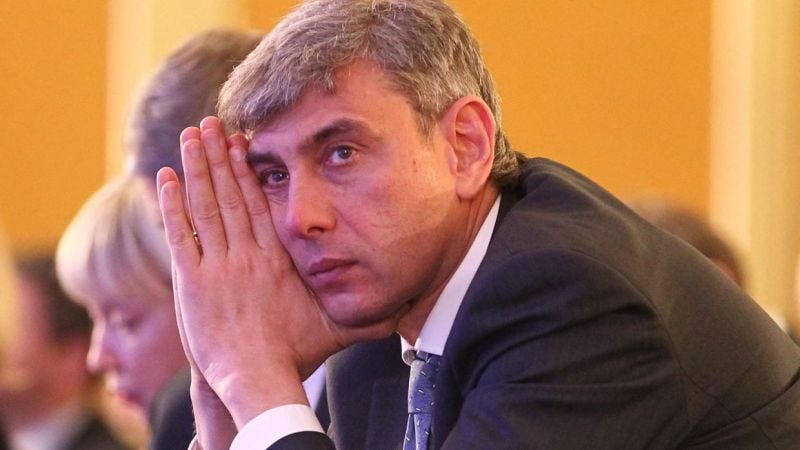Interview with Sergey Galitsky
Sergey Galitsky, the founder and co-owner of Magnit, the Russia's largest retailer.
Interview with Sergey Galitsky, the founder and co-owner of Magnit, the Russia's largest retailer. Forbes estimates his fortune at $3.5 billion in 2021. He is a real entrepreneur, no bailouts. I hope it will be insightful for everyone who wants to enter the Russian market.
There is no one perfect country for doing business. Where there are good conditions, there are small opportunities. Where there are a lot of opportunities, conditions are an issue.
Yes, we have 10 million customers a day. Considering they're families, that's 25-30 million people coming in every day. But it's a real race for customers. We have very strong competitors.
When we cut the price for bananas by 1 ruble, we sell 100 tons a day more. There are people who live within their budget.
Cucumbers last 7-8 days. We had losses of up to 50% in the winter. So we were forced to start our own production. Now we have the biggest greenhouse in Europe (80 ha).
We do not have more than 10% direct imports. It is not a very significant segment of Russian retail.
Thanks to the government, they did not impose sanctions immediately, we had time to readjust. We added Central Asia, Iran, and found products in other countries [2016].
We've been opening three or four stores a day for over three years now. It seems amazing, even to us.
In order not to be disappointed, you don't have to be fascinated. In business, every day is like a war.
I don't see anything Wal-Mart can do that other retailers can't.
The miracles ended two thousand years ago. If the price is lower, the quality is lower. We have to be objective and be honest about it.
In business, you have to not be afraid to go out every day with an open mind and have a chance to lose everything. When you are afraid to lose everything, you have to admit that you no longer have the will that you had.
I only believe in daily, hard work. It's not self-learning. It's just hard work. And whoever spends more time on it has more effect.
Over time, I began to realize that I began to lose speed. At some point you have to tell yourself that operational management, with the intensity you've had for the last 25 years, is no longer for you.
In business, the element of logic is incredibly important. Chess is a good game model of logic. You should also fantastically love what you do and have an incredible sense of purpose.
Entrepreneurs are a special biological breed. Two, four percent at the most, have entrepreneurial potential. In our country, whoever thought they needed more money in this life declares themselves an entrepreneur, and when it turns out they're not ready for these risks and these stresses, they start complaining about the FSB or conspiracies by government agencies, just like a person who complains about the weather.
"Pyatyorochka" (X5 Group) and I have always had different strategies: we were focused on EBITDA, and they are on the growth. For me it was better to be a smaller player in the market, but profitable. What good is it to come all the way to the finish line where it says: no money? I was always uncomfortable with having a lot of debt - EBITDA drops a little and you immediately have problems with the banks. We always tried to keep the debt covenants no higher than 1.5.
I don't hold a grievance against this state. Don't demand more from this state than it can give. We compare ourselves to the old democracies all the time. Many admire the Queen of England, but let us remember how she distributed English lands to her closest associates and what her ancestors did in India in the 18th century, for example. We are as young a state as England was then. Our state is doing exactly what is peculiar to a state at this stage of development.
I think it's a punishment to be an MP. To be obliged to sit in a chair for 200 days a year and argue with Zhirinovsky about something. Is there any worse punishment than arguing with communists and Zhirinovsky for 200 days a year?
I could do nothing without the team, I'm just an ordinary man.




